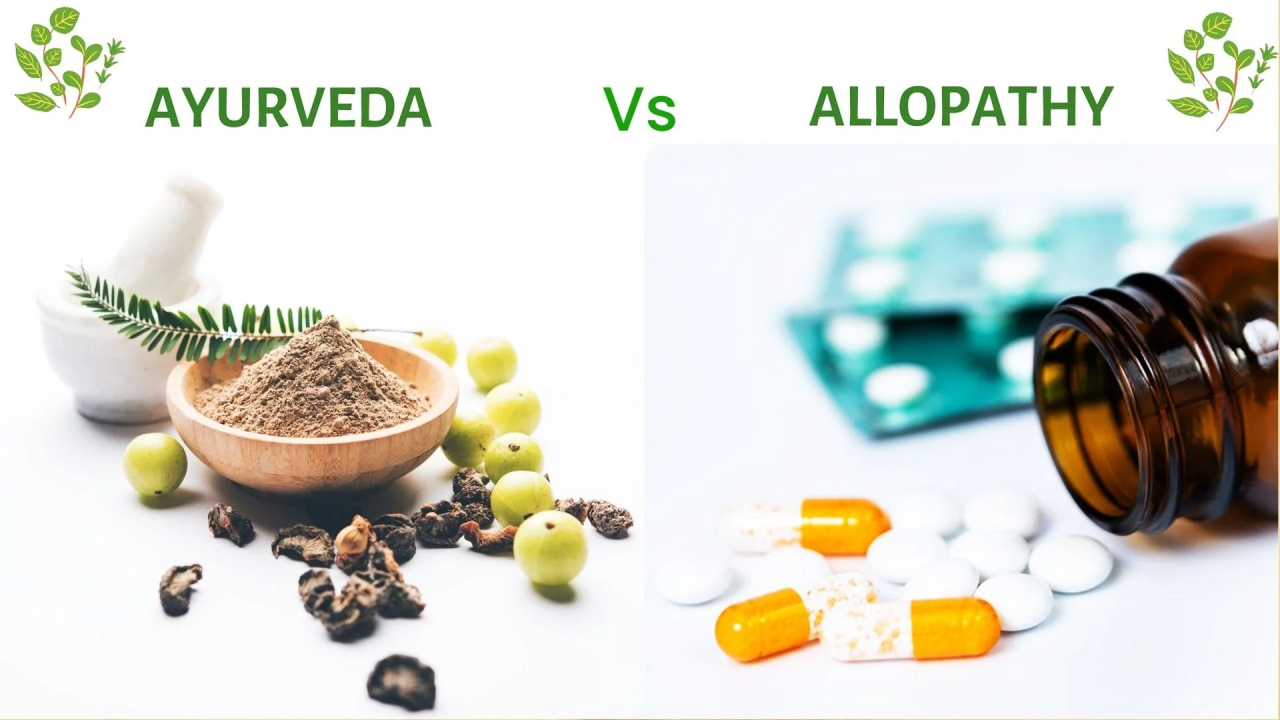
Allopathy vs Ayurveda: Two Healing Paths, One Goal
Healthcare is no longer a one-size-fits-all journey. Around the world, people are exploring both modern and traditional medicine to heal and maintain well-being. Two of the most well-known systems — Allopathy (modern medicine) and Ayurveda (ancient Indian medicine) — offer very different approaches to treating disease.
So what’s the difference? Which one is better? Or can they work together? Let’s break it down.
🧬 What Is Allopathy?
Also called conventional medicine, allopathy is the system taught in medical schools globally. It’s science-based, relies heavily on diagnostics, and treats illnesses with pharmaceutical drugs, surgery, and radiation.
Key features:
Emphasis on symptom-based treatment
Fast-acting medications (e.g., antibiotics, analgesics)
Focused on curing or managing diseases
Rooted in evidence-based clinical trials
Common example: If you have a bacterial infection, an allopathic doctor will prescribe antibiotics to kill the bacteria quickly.
🌱 What Is Ayurveda?
Ayurveda is a 5,000-year-old holistic healing system that originated in India. It treats the mind, body, and spirit as one, using natural remedies, herbs, diet, massage, and yoga.
Key principles:
Prevention is better than cure
Focus on balancing the three doshas (Vata, Pitta, Kapha)
Healing through lifestyle, detox, herbs, and energy balance
Rooted in natural and seasonal rhythms
Common example: If you have digestive issues, an Ayurvedic doctor might recommend dietary changes, herbal teas, detox, and meditation — rather than just prescribing pills.
❤️ Strengths of Each System
✅ Strengths of Allopathy
Excellent for emergencies, trauma, surgeries
Precise diagnostics (CT, MRI, blood markers)
Advanced in areas like cardiology, oncology, orthopedics
Backed by rigorous research and regulation
✅ Strengths of Ayurveda
Great for chronic conditions (e.g., arthritis, IBS, anxiety)
Emphasizes prevention and detoxification
Minimal side effects (when practiced properly)
Focuses on personalized healing
⚠️ Challenges of Each
❗ Allopathy Concerns:
Side effects of synthetic drugs
Over-reliance on medication for lifestyle diseases
Less focus on holistic health or prevention
❗ Ayurveda Concerns:
Not always standardized or regulated
May lack scientific validation in some areas
Slower results require patience and consistency
🤝 Can They Work Together?
Absolutely! This is called integrative medicine — using the best of both worlds.
For example:
An allopathic doctor might treat diabetes with insulin, while an Ayurvedic practitioner might guide the patient on anti-inflammatory herbs and lifestyle changes.
A cancer patient may undergo chemotherapy (allopathy) but use Ayurvedic oils, yoga, or diet to manage side effects and boost recovery.
The future of healthcare is not one-versus-the-other, but collaboration for better outcomes.
🧘 So, Which One Should You Choose?
It depends on:
The nature of your condition (acute vs chronic)
Your belief system and comfort level
The expertise of your practitioner
Emergencies? Allopathy is your go-to.
Long-term wellness, detox, stress? Ayurveda has powerful tools.
Many people now choose a hybrid approach, tailoring treatments based on personal needs.
🌐 Final Thoughts
Whether you're drawn to the modern precision of allopathy or the ancient wisdom of Ayurveda, both systems offer valuable healing tools. The goal, after all, is the same: a healthier, happier you.
Choose wisely, stay informed, and don't be afraid to ask questions or seek second opinions — whether from a surgeon or an Ayurvedic vaidya.




